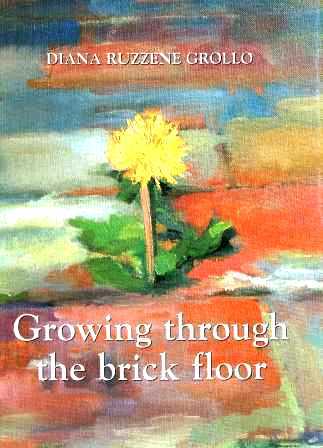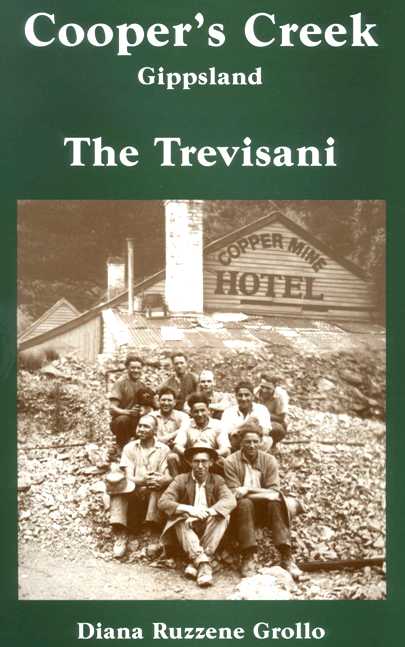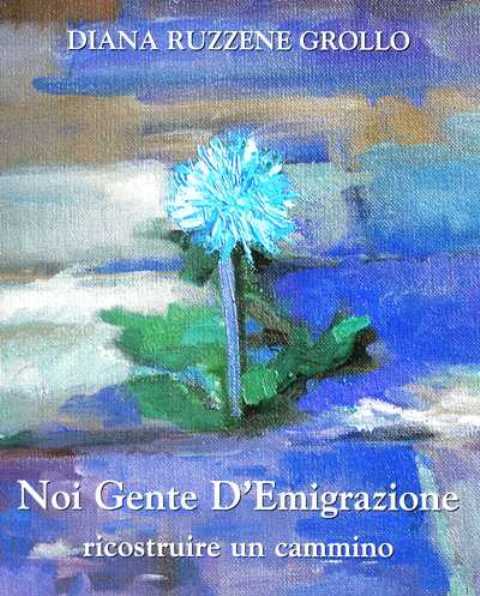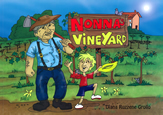|




.jpg)


| |
|
|
|
|
| |
World War 1 In Italy
Not a Side Show
by
Diana Ruzzene Grollo
By the turn of 1900, the Italian people, especially the youth felt betrayed and angry there was no sense of Nationalism or unity, despite the Italian empire's expansion. The landless were still landless, industries were developing in few large Northern cities, the lack of a common language alienated many people, education was minimal and illiteracy was widespread, people relied on the local priest to help with the writing or reading of letters and documents.
Italy entered the First World War, in May 1915, as part of the Allies. The Italian government saw the war as a remedy to the many problems. The theater of war was on the Northern Eastern Border, what is now Slovenia. In the first year there were many victories and advancements, but, gradually the Italian army began to lose.
As the Italian army retreated the Italian civilians joined in, wanting to escape the German, Austro-Hungarian occupation. The Italian army destroyed bridges, bell towers, set fire to haystacks and barns and all foods including the seeds for the Spring planting were taken or thrown into the rivers. Farm animals were herded up and youths were sent behind the Italian lines. This was to prepare them in case they were to be conscripted in the near future. The Italian army committed wonton destruction; it left its citizens without food and no prospect of obtaining food in the near future. Understandably, all this was so the enemy would not find food when it arrived, but little consideration was given to those civilians that remained behind.
Austro-Hungarian army, the 7th Corp occupied the whole area near the Piave River. Hell broke out for the people on the 8th of November 1917. Padre Lodovico Ciganotto from a nearby monastery recorded in his diary: "we go to sleep Italians and awake Austrians ...those who remained, were the impoverished, those who could not leave the only thing that could sustain them- the land." The newly constructed steel bridge across the Livenza River in the town of Meduna, opened only in April of 1917, was destroyed in October. Deaths trebled 1917 to 1918 in the area. There was wonton destruction by the enemy soldiers.
The civilians were removed from their house on the war front including the Grollo family, behind the Italian line. Those civilians under occupation were also moved back, others like the Ruzzene family, their house was commandeered and the family became refugees. Left to find shelter where they could.
Over time everyone was starving, not only the civilians but, even the enemy soldiers, as stated by their Commander Boroevic. Author Bernardis personal account states that, the chickens, the pigs, and all the animals were the first to be commandeered... these soldiers were even poorer and malnourished than we. Not only the enemy soldiers, but also, the population at home in Austria and Hungary were economically depleted. All this warring was using up all the finances, leaving the people starving and causing huge prices on the black market for basic foods. Also, 1916 the harvest in Austria and Hungary was very poor due to lack of rains. Also, there were blockade by the Allied Navy that controlled the North Sea that ensured that food supply did not enter the enemy countries. Therefore the enemy soldiers would steal anything of value and sent back home. It was not only, art or jewelry but, furniture, farming tools, household goods, blankets, sheets and clothes. Leaving the local civilians in a miserable state of existence.
The lack of food and constant stress weakened the people, so, that they fell victim to many illnesses. In the space of one year the region was devastated by the Spanish flu epidemic, malaria and dysentery. Before the occupation, this region had a population of more than one million inhabitants and 300 doctors. By 1918, only 19 doctors were left.
Besides carnage from the weapons and bombs, the Spanish flu virus became active in the winter of 1917-1918. This flu decimated the population of the region. It attacked the very young and old.
Italy was part of the Victorious Allies, yet due to the war, many people were forced to migrate or to move to cities, where work was available, breaking up families and communities.
 |
© Diana Ruzzene Grollo
All rights reserved. No part of this book may be reproduced or transmitted in
any form or by any means, electronic or mechanical, without permission in
writing by the publisher.
| |
|